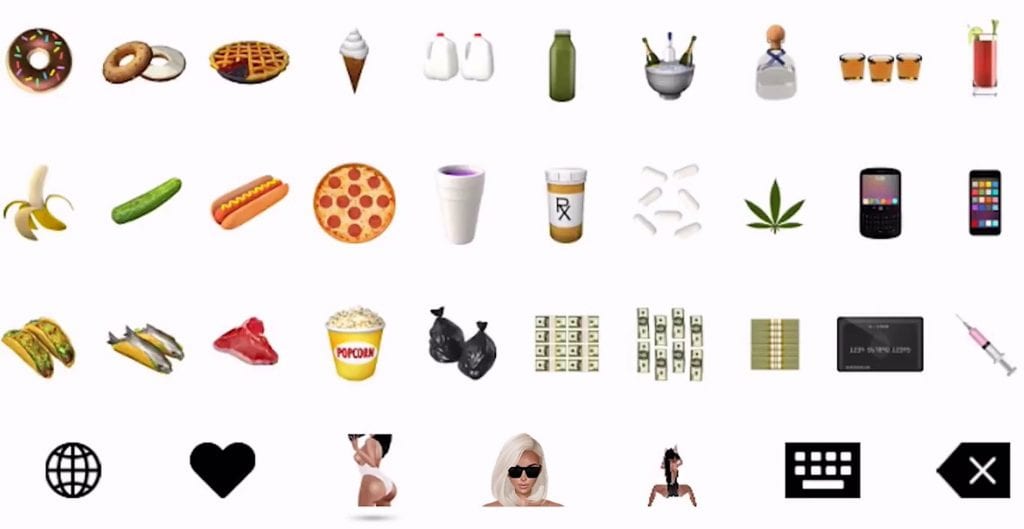“We came up with ‘Kimoji!’” That is the central claim in the $100 million-plus fraud and breach of contract lawsuit filed earlier this month in an Oklahoma federal court by app developer David Liebensohn against Kardashian in a personal capacity and against her corporate entity, which takes issue with a partnership deal that the parties allegedly formed in 2014 to launch the wildly successful Kimoji venture only to have Kardashian swiftly cut him out less than a month later.
Liebensohn asserts that in 2014, he, along with his partners Narayan Shankar and Diel Rice, created an app by way of their company App Social aimed at “enhancing a user’s social media experience,” including “protecting social media users’ accounts from bullying, spammers, and trolls on Instagram” by enabling an account holder to filter and automatically delete “unwanted comments and hashtags and ban unwanted users.”
As a user of the anti-bullying app herself (per the complaint) and having unsuccessfully lobbied Instagram’s former CEO Kevin Systrom to include “anti-bullying features” on the app, only to be told that “Instagram was unwilling to implement a one-size-fits-all solution to bullying,” Kardashian reached out to Social App by way of her “friend and social media assistant Jonathan Cheban” in June 2014, who said that the mega-star “was interested in the app and wanted to discuss her potential investment.”
All the while, in early 2014, Liebensohn says that his company was developing an array of “provocative” animated emojis, which they had updated to include “Kardashian’s likeness” and had entitled, “Kimoji,” and ultimately showed to Kardashian in a meeting in Calabasas a month later.
According to the complaint, Kardashian “loved” the idea for the Kimojis and “insisted that she file the ‘Kimoji’ trademark application to save costs,” but “promised that they would promote the concept together as a team.” At a follow up meeting at Kris Jenner’s home in late July, the parties finalized the terms of their deal –Liebensohn and co. would hold on to 60 percent of the venture, while Kardashian get 40 percent – and determined that App Social “would contribute its skill, intellectual property, ideas [and] the emoji content,” while Kardashian would raise $660,000 for the venture.
Less than a month later, after Social App had “shared their prototype for the Kimoji concept [with] Kardashian,” the partnership fell apart after Kardashian accused Liebensohn’s partners of sharing her personal information with others, which the lawsuit describes as little more than “an excuse to cancel the partnership.” Moreover, Liebensohn claims that counsel for Kardashian threatened him and Social App with a $5 million lawsuit if he and his team did not walk away from the newly-formed deal and forego their 40 percent stake.
The parties seemed to go their separate ways until Liebensohn says he discovered a year later that Kardashian had moved forward with the Kimoji venture after partnering with a Los Angeles-based company called Whalerock to develop the emoji-centric “Kimoji” app, and was actively promoting it. The complaint asserts that Kardashian “continues to use and profit off of the name ‘Kimoji’ … while it was Liebensohn, Rice, and Shankar who came up with this name” and the idea for the app.
With such allegations in mind, Liebensohn has set forth claims of breach of contract, breach of fiduciary duty, unjust enrichment, and fraud, and is seeking damages to be determined at trial but “no less than $100,000,000.”
* The case is David Liebensohn v. Kimsaprincess, Inc.; and Kim Kardashian West, 5:19-cv-00137 (W.D. Okla.).











